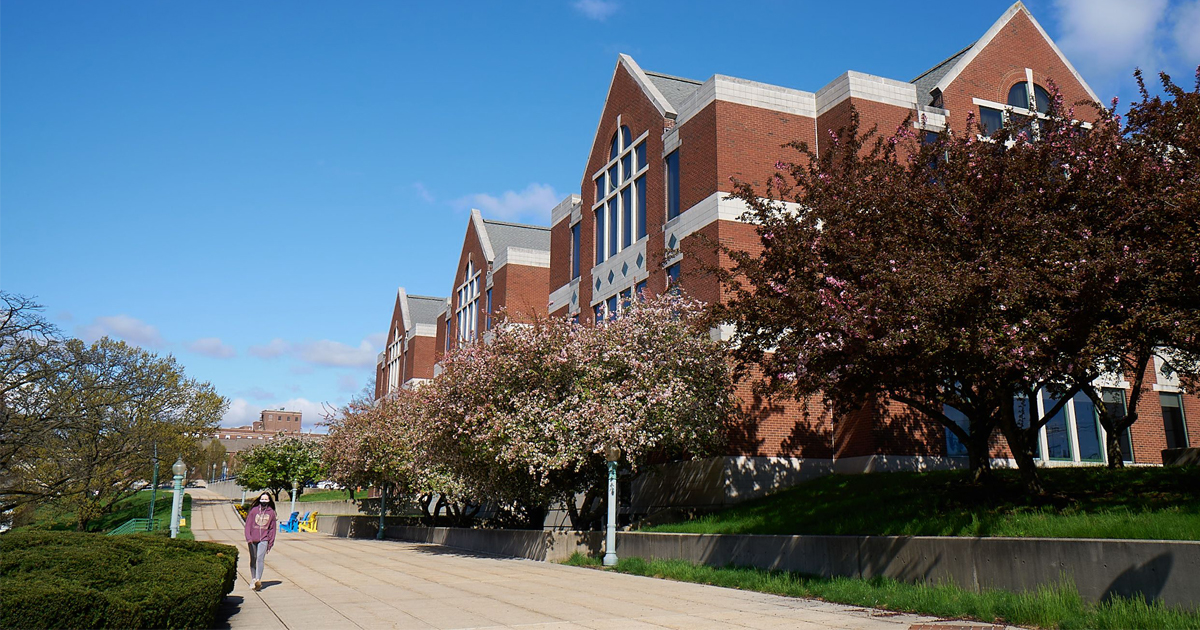La Salle University
Strengthening STEM elementary education in Northwest Philadelphia
La Salle has received a six-figure grant that will improve and increase STEM programming for city students.
La Salle University has received a six-figure grant from Pennsylvania’s Department of Education that will improve accessibility to science, technology, engineering, and math (STEM) education for elementary- and middle-school students in Northwest Philadelphia.
That’s just one of several notable outcomes that are possible through the $125,000 grant, which supports La Salle’s Communities of Learners Exploring STEM Careers program. The three-week enrichment program includes a summer camp for first- through ninth-grade students supported by K-8 teachers from the Northwest section of Philadelphia. This intimate cohort will be supported by a year-long collaboration with La Salle faculty and industry professionals to develop STEM and career-focused instruction for their students.
La Salle’s Communities of Learners Exploring STEM Careers program—or CLES-C, for short— increases and improves access for students to STEM-related instruction and enrichment, through in- and out-of-school programs. It also brings industry connections to the community through cross-sector professional partnerships that enhance STEM engagement through real-world applications that are relevant to the workforce for K-8 students.
The end result of the program, said Greer Richardson, Ph.D., associate professor of education at La Salle, is to bring environmentally focused, problem-based, and career-aligned learning experiences to K-8 students from historically under-represented and underserved communities.
“Northwest Philadelphia is a STEM desert,” said Richardson, the lead applicant for the grant. “STEM activity in Olney, Belfield, and Germantown is lacking. Few opportunities exist for students here. Camps aren’t prevalent and schools offer only general activities. By and large, we recognize that students, particularly students of color, in certain ZIP codes don’t have the opportunities to move into or through the STEM pipeline. The goal of this grant-funded program remains focused on supporting student interest in all phases of STEM engagement.”
Richardson added: “Our program connects educators with relevant curriculum today that will lead to career awareness, experiences, and opportunities later for the students of Northwest Philadelphia.”
This marks the second cycle of the 18-month Pennsylvania DOE grant—part of the PAsmart Advancing Computer Science and STEM Education Grants program. The grant was first awarded to La Salle in 2018. This iteration runs through September 2022.
La Salle’s CLES-C program addresses key issues affecting the education and professional sectors in Pennsylvania, where business leaders struggle to find the STEM talent they need in order to stay competitive. In particular, students’ lagging performance in STEM curriculum is a critical reason why many jobs go unfilled. There’s also a STEM teacher shortage, Richardson said, resulting in an academic achievement gap. In 2019, PSSA scores revealed that Northwest Philadelphia schools have 50 percent of students scoring at or below basic in math and science across third through eighth grades, compared with 30 percent elsewhere in Pennsylvania. The learning loss, she said, is more pronounced for African-American and Latinx students.
It’s not uncommon for students introduced to STEM environments to follow that pathway through middle and high school and, eventually, into college and through their professional pursuits, Richardson said. Programs like La Salle’s “support that pipeline by cultivating students’ interest in STEM, leading to rewarding and sustaining careers.”
Recruitment for La Salle’s Communities of Learners Exploring STEM Careers program has begun and continues through the early part of the summer. (Those seeking more information can contact Greer Richardson at richards@lasalle.edu.)
“Often, K-8 teachers suffer from a lack of confidence that affects their ability to teach in STEM areas,” said program instructor Ling Liang, Ph.D., associate professor of education at La Salle. “The program gives them exposure to resources and professional development that they can bring into their classrooms throughout our area.”
“There’s a changing landscape in the career workforce,” said program instructor Margaret “Peggy” McCoey, assistant professor and graduate program director of computer information science at La Salle. “We’re trying to impart to teachers and, by proxy, their students that career opportunities await these students in the all-important STEM fields.”
—Christopher A. Vito
